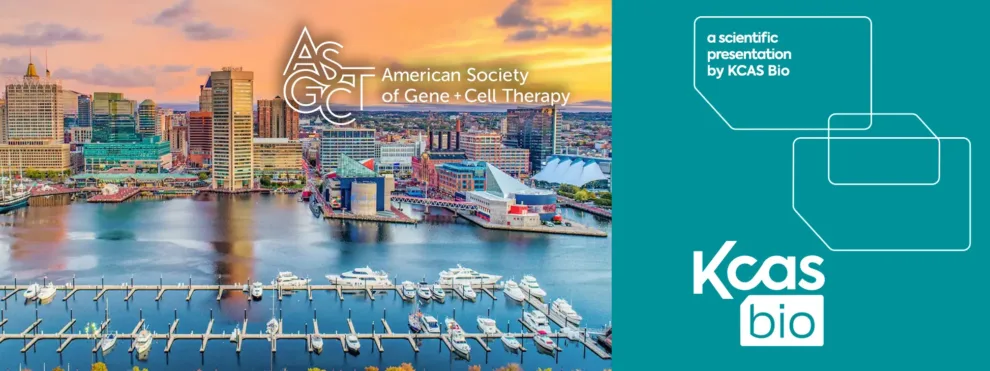Arguably the most groundbreaking new opportunities for the treatment of disease and injury are Cell and Gene Therapy Products (CGTP) or what the European Medicines Agency (EMA) call Advanced Therapy Medicinal Products (ATMPs). EMA has broken down ATMPs into three main types:

- Gene therapy medicines: these contain genes and insert into the body.
- Somatic-cell therapy medicines: these contain cells or tissues that have been manipulated/engineered and function differently when inserted into the body.
- Tissue-engineered medicines: these contain cells or tissues that have been manipulated/engineered to repair/regenerate/ replace when inserted into the body.
At KCAS Bio, we support CGTPs and all three of these ATMP types using a variety of service lines, but the most notable is our molecular services.
Despite the increasing number of CGTP/ATMP drug candidates, the bioanalysis supporting these programs is still fraught with many hurdles. These challenges include limited or no well-defined guidance; lack of harmonization of validation approaches and acceptance criteria; and limited software tools to facilitate the management of the high volume of bioanalytical data being generated.
Artificial intelligence (AI) offers a unique opportunity to alleviate these data analysis and throughput challenges by automating key processes that reduce time and increase efficiencies while maintaining data security, integrity, and compliance, such as 21 CFR part 11. More importantly, AI-enabled auditing data tools can facilitate consistency in scientific approaches and standardization of acceptance criteria.
At KCAS Bio, we partnered with BioData Solutions to address the challenges with regulated bioanalytical molecular assays for supporting GLP and GCP studies. To learn more about how we solve these challenges see our ASCGT 2024 poster. Briefly, the benefit of AI automation for molecular assays in a regulated environment resulted in a 96.4%-time savings, >99% reduction in transcription and calculation errors, a 97.3% cost savings, and a 6X return on investment.
We are sure many other bioanalytical CROs will be looking to invest in the automation of molecular assay data for support of regulated bioanalysis, but it provides a competitive advantage to be the first bioanalytical CRO to offer automation of molecular assay data. The use of automation of data does not stop with Molecular assays. At KCAS Bio, we have been using this type of automation for >3 years for ADA cut-point analysis and anticipate using this type of automation for biomarker panels. If you are interested in learning more about our molecular assay services and automation or any of KCAS Bio services, please contact us.

